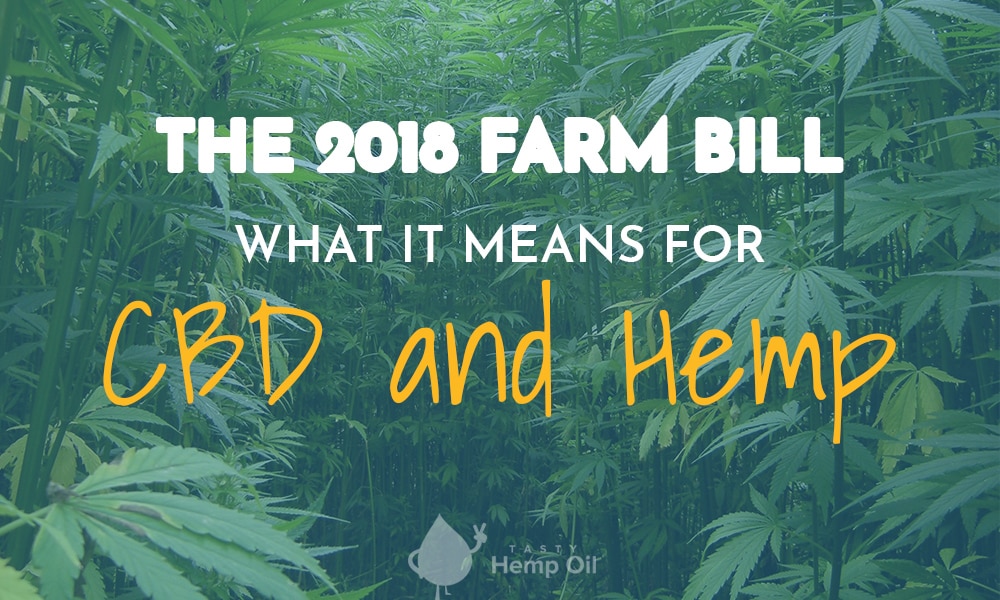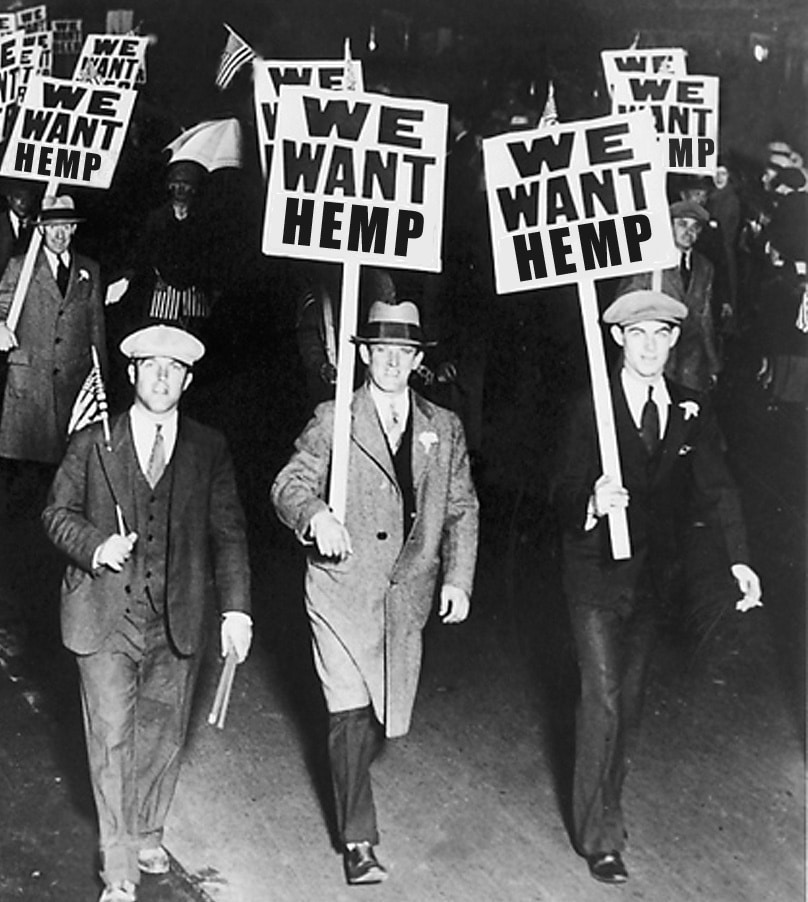
Today, the 2018 Farm Bill was signed, a revolutionary piece of legislature for multiple industries, but most importantly: the hemp industry. For decades, hemp (and in turn CBD itself) has been listed as a Controlled Substance, putting it alongside marijuana and other intoxicating substances. However, moving forward, hemp will be placed under the supervision of the Department of Agriculture.
This change will revolutionize the CBD industry, which had been living in a legal gray area for decades. Some regulations were eased with the 2014 Farm Bill, but it was still very difficult for CBD companies like us to follow the guidelines, as some were up almost entirely to interpretation.
With the 2018 Farm Bill, hemp farmers are going to have the ability to participate in USDA programs for certifications for competitive grants, that partnered with a CBD industry that was worth $350 million in 2017 (even with the regulations), the sky is the limit for hemp!
The History of Hemp Prohibition

The Marihuana Tax Act of 1937 was one of the first steps that America made in the crackdown on hemp plants. However, even before this was passed, attempts to slow down the hemp industry took place as early as 1906. Back then, hemp was used primarily as a way to make paper.
The Tax Act of 1937 was eventually overruled by Leary v. United States in 1969. This found the previously enacted tax act unconstitutional, after Timothy Leary himself was arrested for possession of marijuana.
In the next year, the Controlled Substances Act was passed, which the new 2018 Farm Bill successfully overrules. This was a replacement for the Marihuana Tax Act of 1937 and placed hemp as a controlled substance.
The Highlights Of The 2018 Farm Bill
Read on for the main highlights from the bill itself by attorney Jonathan Miller from Frost Brown Todd LLC, or you can read the entire 807-page report.
- “By redefining hemp to include its “extracts, cannabinoids and derivatives,” Congress explicitly has removed popular hemp products — such as hemp-derived cannabidiol (CBD) — from the purview of the CSA. Accordingly, the Drug Enforcement Administration no longer has any possible claim to interfere with the interstate commerce of hemp products. This should give comfort to federally regulated institutions — banks, merchant services, credit card companies, e-commerce sites, and advertising platforms — to conduct commerce with the hemp and hemp product industry.”
- “Hemp farmers now may finally access needed crop insurance and can fully participate in USDA programs for certification and competitive grants.”
- “State and Tribal governments may impose separate restrictions or requirements on hemp growth and the sale of hemp products – however, they cannot interfere with the interstate transport of hemp or hemp products. We are hopeful that local and state officials will follow Congress’ lead, as well as the statements and resolutions of the World Health Organization and the U.S. Food and Drug Administration (FDA) that declare, after intense scientific scrutiny, that CBD is safe, non-toxic, and non-addictive.”
- “The FDA continues to exercise jurisdiction over the regulation of ingestible and topical hemp products. We applaud the agency’s continued efforts to crack down on bad actors who undermine the industry through misguided marketing claims. And while we are concerned about non-binding statements made by the FDA that have led some state and local officials to question the legality of the retail sale of hemp-derived CBD, we are hopeful that we can work with the agency to clarify that CBD – which their own scientists concluded has no abuse potential and does not pose a risk to public health – should not be withheld from Americans who count on it for their health and wellness.”
Section By Section
- Section 7129 (p. 313): Includes hemp in USDA’s supplemental and alternative crops programs. Section 7501 (p. 338): Includes hemp in USDA’s critical agricultural materials programs.
- Section 7605 (p. 347): Orders the USDA Secretary to prepare a report on the 2014 Farm Bill pilot program, and then repeals that program one year after the new permanent hemp program is created. Section 10113 (p. 429): The guts of the new permanent legalization regime:
- Section 297A (p. 429) Defines hemp as all parts of the plant less than 0.3% THC, including “derivatives,” “extracts” and “cannabinoids.”
- Section 297B (p. 429) Empowers states and Tribes to submit plans to USDA to implement permanent hemp growing program. Requires information gathering, testing, and inspection procedures. The USDA Secretary must sign off on, or reject, the plan within 60 days, and consult with the Attorney General. The Secretary can later audit state programs and work with the states to develop corrective action plans where there is noncompliance.
- Section 297B(e)(p. 431): Orders states and Tribes to develop procedures to address violations, including corrective action in the case of negligence.
- Section 297B(e)(3)(B) (p. 432): Individuals who commit drug felonies cannot participate in state or Tribal growth programs for 10 years following the date of their conviction. However, participants in the 2014 Farm Bill pilot programs are grandfathered in to participate in permanent programs despite any prior felony committed.
- Section 297C (p. 432): States and Tribes are required to maintain information on lands where hemp is grown and testing, enforcement and inspection procedures. The USDA Secretary must collect such information to be accessible in real time to local, state and federal law enforcement.
- Section 297D (p. 434): The USDA Secretary is required to submit an annual report to Congress on the program’s implementation.
- Section 297D(c)(p. 434): Nothing in the new law affects the FDA’s authority under the Food, Drug, and Cosmetic Act or the Public Health Service Act.
- Section 10114 (p. 435): Nothing in the act prohibits the interstate commerce of hemp, nor can States or Tribes prohibit the transportation of hemp or hemp products through their territory.
- Title XI (p. 439): Hemp farmers are made eligible for crop insurance, and marketability requirements for the crop insurance program can be waived.
- Section 12619 (p. 540): Hemp is removed from the definition of “marihuana,” and THC found in hemp is excluded from the definition of a controlled substance.”
In Closing
As we look to the future of the hemp industry, one thing is for certain: the best is yet to come! Are you interested in learning more about CBD, or finally trying it? Shop CBD now!
